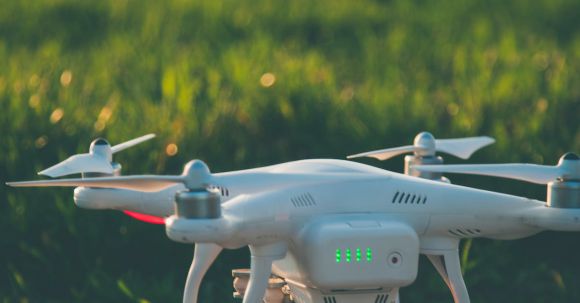Drones have become increasingly popular in recent years, with their ability to capture stunning aerial footage and perform a variety of tasks. However, there are different types of drones available on the market, and one of the key distinctions is whether they are equipped with GPS capabilities or not. In this article, we will explore the differences between GPS and non-GPS drones and discuss the advantages and disadvantages of each.
Understanding GPS Drones
GPS, which stands for Global Positioning System, is a navigation system that uses satellites to provide accurate positioning information. GPS drones are equipped with GPS receivers, allowing them to receive signals from multiple satellites and determine their precise location in real-time.
Enhanced Flight Control
One of the main advantages of GPS drones is their enhanced flight control capabilities. With GPS, drones can autonomously maintain their position in the sky, even in windy conditions. This is particularly useful for capturing stable aerial footage or conducting precise inspections of infrastructure.
Waypoint Navigation
Another feature enabled by GPS is waypoint navigation. This allows users to pre-program a series of specific GPS coordinates that the drone will follow. With this capability, drones can fly on a predetermined path, automatically navigating to different locations without requiring constant manual control. This makes GPS drones ideal for surveying large areas or conducting search and rescue operations.
Return-to-Home Functionality
GPS drones are also equipped with a return-to-home function, which automatically brings the drone back to its takeoff location. This feature is particularly valuable in situations where the drone loses signal or if the battery is running low. With the push of a button, the drone will autonomously navigate back to its starting point, ensuring a safe and controlled landing.
Limitations of GPS Drones
While GPS drones offer numerous benefits, they do come with some limitations. One of the main drawbacks is their reliance on satellite signals. In areas with poor GPS coverage, such as dense forests or urban canyons, the drone’s navigation and flight control capabilities may be compromised. Additionally, GPS signals can be easily jammed or disrupted, which can pose a security risk in certain environments.
Non-GPS Drones: An Alternative Option
Non-GPS drones, also known as analog drones, do not rely on GPS for navigation. Instead, they utilize a combination of sensors, such as accelerometers and gyroscopes, to maintain stability and control during flight. These drones are typically more affordable and simpler in design compared to GPS drones.
Manual Control
One of the advantages of non-GPS drones is the level of control they offer to the pilot. These drones require constant manual control, allowing the operator to make real-time adjustments to the drone’s flight path. This makes them suitable for tasks that require precise maneuvering or in situations where GPS signals are unreliable.
Compact and Lightweight
Non-GPS drones are often smaller and lighter than their GPS counterparts. This makes them more portable and easier to transport. Additionally, their simpler design means they require less power, resulting in longer flight times. These characteristics make non-GPS drones popular among hobbyists and those who prioritize convenience and ease of use.
Conclusion: Choosing the Right Drone
When deciding between GPS and non-GPS drones, it ultimately comes down to the specific needs and preferences of the user. GPS drones offer advanced flight control capabilities, autonomous navigation, and a reliable return-to-home function. On the other hand, non-GPS drones provide manual control, greater portability, and affordability.
Both types of drones have their advantages and limitations, and it’s essential to evaluate these factors before making a purchase. Whether you’re a professional aerial photographer or a recreational drone enthusiast, understanding the differences between GPS and non-GPS drones will help you make an informed decision and find the drone that best suits your needs.




